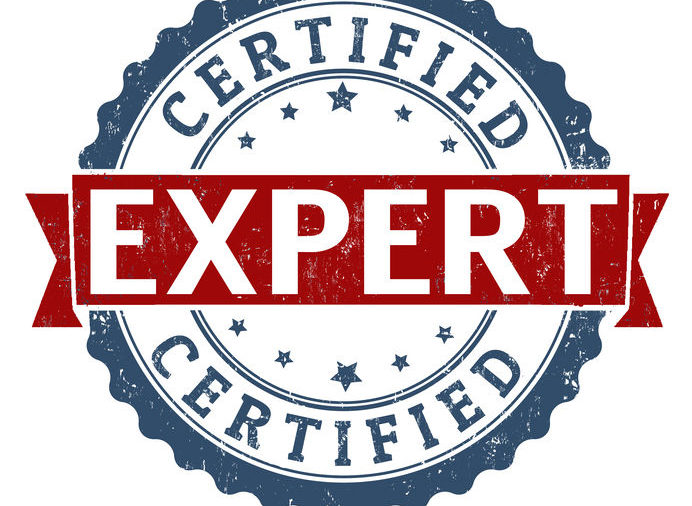A few weeks back, I wrestled with a blog topic for October.
My goal with the blogs is to provide added value for writers and share practical tricks, tips and techniques.
When a writer in one of the classes asked, “Eva, how do I find an expert to quote for an article?” I knew I’d hit the jack pot.
Here’s the scoop.
Experts are everywhere when you know how to find them.
When pitching a query to an editor to ascertain if she/he likes your idea, you could find yourself searching for an expert or five to interview and back up your topics. How do you know if you need other voices than just yours for an article? Read the pub. If each article that’s published includes a few experts’ comments, then you’ll be expected to include quotes.
Editors do not want you to rehash what has been published. They want fresh quotes from the experts, so citing a previously published quote typically won’t cut it.
The truth is an expert is simply a person who knows more than the rest of us on a topic. A chimney sweep knows chimneys. A hair stylist knows hair. A kindergartener knows playground etiquette. An attorney knows litigation. A car mechanic knows engines. A teenager knows everything on the planet about social media.
Right? Right.
How do you find experts? Google. Ask friends. Do a search of experts in your location. Writing an article for the Costco Connection (the store’s publication with a distribution of over 25 million) I needed some experts to share information on birding. I feed the birds in our garden, know a scrub jay from a goldfinch, and that’s about my extensive knowledge.
Hence, I contacted the Audubon Society and was connected with an expert on how to set up a bird-loving garden, the topic of my article. She recommended two other experts and I got my interviews.
When the magazine’s editor asked me to modify that article so it could be featured in their publication distributed in Britain, I return to my experts and asked if they had colleagues in England. They did. I emailed the experts and got info for the quotes that pertain to the British Isles and not North America.
As a mentor of mine once told me, “If you want something, ask. The worst that can happen is the person says no and you’ve heard no before.” Don’t be afraid to ask.
Back to chimney sweeps. I did interview one years back when writing an article for a home improvement magazine on chimney safety. I did an online search and called a few I found from Yelp reviews. The first two didn’t return my call. The third was chatty and helpful. (Yes, I did have him sign an interview release.)
I also interviewed the captain of our local fire department and got some excellent suggestions. (Again, she signed an interview release.)
What does one say when approaching an expert? Here’s my take and please modify it:
“Thanks for talking with me, Ms. X. I’m suggesting to a magazine editor an idea for an article on how to avoid chimney fires. With your experience, your advice would be invaluable. Could we set a time for me to ask a few preliminary questions and then once I get the go-ahead from the editor to write the article, I’ll have a few more after that.”
If an expert poses too many restrictions, I thank her and move on. I can be fussed at by my family, I don’t need it from strangers.
By the way, have your five or so questions ready when you call because the expert might want to do the interview right then.
As for whether an expert is paid for his opinion, that’s an excellent question. I have never paid one even when interviewing Hollywood stars. They get exposure, I get an interview. Authors, entrepreneurs, business folks, restauranters, dog walkers, etc., get free publicity. It’s a smart trade for a few moments of their time.
FYI, here’s the interview release form I use. Find others on the Internet. Feel free to tweak it:
Interview Release Form I understand that ____________________________________ (the “Author,” that’s you) is preparing, writing, and will publish a work on the subject of _________________________________ , which is currently titled ______________________________________(the Work). In order to assist the Author in the preparation of the Work, I have agreed to be interviewed and to provide information and other materials to be used in connection with the Work, including my personal experiences, remarks, and recollections. I hereby grant permission to the Author to quote or paraphrase all or any portion of the interview in her book. Permission granted is for World rights in all languages and editions of any publication. I understand and acknowledge that the Author will be the sole owner of all copyright and other rights in and to the Work. I acknowledge and agree that I am not entitled to receive any form of payment from the Author. Agreed and confirmed: _____________________________________ Date: _____________ Signature _____________________________________ Name (print) |

Hi Eva! It’s Gina, from the Writeriffic course that wrapped up Oct 2. Just wanted to stop by and say hello. I look forward to gaining valuable tips via your blog until we meet again in your memoir writing course. Chester (my naughty Red Persian) sends his regards.
I appreciate the tips for this so much. Thank you : )
Reading this article and the one just before it makes me really realize how hard you have to work as a writer. This may seem simplistic but I think I had this crazy idea that it would be easier!
Thank you for such a helpful article. I had no idea about what an interview release form was so I appreciate it. Is this release form enough or should the signature be recognized officially?